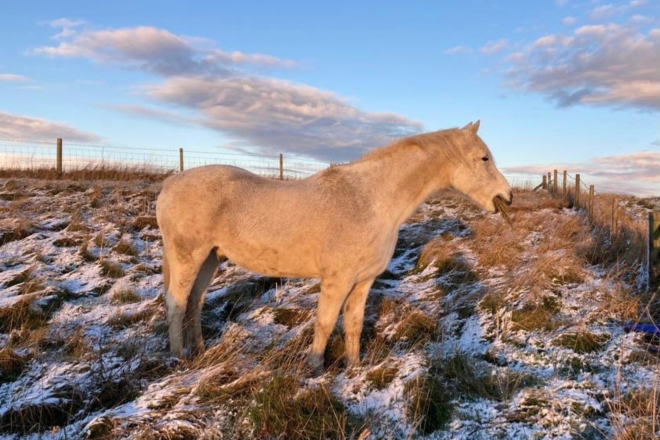Poaching
Poaching describes the negative effect of exposed soils caused by the loss of vegetation due to over-stocking or animals dwelling in gateways or at feed stations for example. Poached land in turn causes soil erosion, compaction and waterlogging. To help manage poached land, the following sets out some key considerations and suggestions.
Consider:
- Poaching can cause mud fever in horses.
- Where poaching is field-wide and no supplementary forage is provided, it can exacerbate gastric ulcers.
- Identifying where the problem is worst.
- Numbers of horses and land capacity.

Suggestions:
- If the problem is field-wide see considerations for waterlogging and compaction.
- Remove horses as soon as poaching starts to occur, to prevent it getting worse and requiring intervention to remedy.
- Reduce numbers and/or the amount of time grazing.
- If poaching is generally around gateways, field edges or tracks consider ways to change equine behaviours:
- Use different access points.
- Move gateways away from the bottom of slopes where ground might be wetter.
- Avoid feeding horses from the same points as they will often gather there in anticipation.
- Provide access to existing hard-standing and water for loafing behaviours, to allow grassland time to ‘rest’.
- A short-term solution to be used in conjunction with the above, could be to make gateways more robust, using sensitive materials such as grass matting (not plastic) that reduces poaching (if poaching is relatively light) but still allows grass to grow.
- Longer term, re-seed areas with native and locally appropriate species for your soil, this could make a big difference long-term and reduce time spent dealing with problem weeds.

